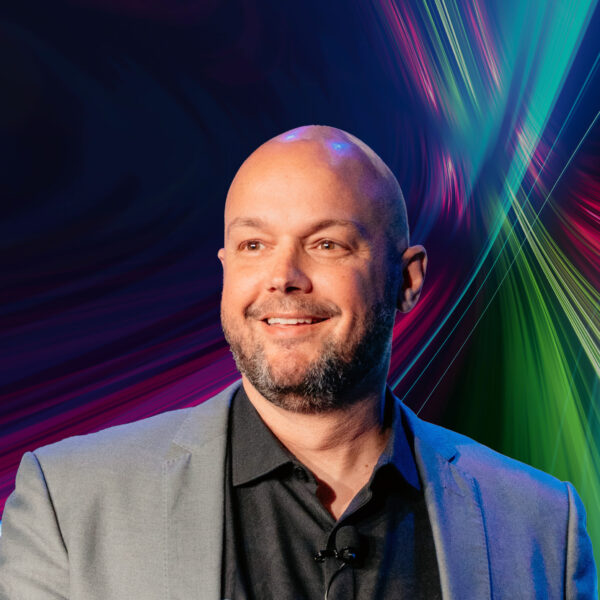Ethical AI isn’t just a philosophy; it’s a practical framework for building better digital experiences. In this episode of the Human-First AI Marketing podcast, Mike Montague sits down with Warren Wilansky, founder of Plank and the Ethical Web Collective, to explore what ethics actually look like in web design and development. From accessibility and inclusion to sustainable coding and responsible data collection, Warren shares real-world examples and tools that small marketing teams can use today, without needing a massive tech budget.
You’ll learn why accessibility is more than a compliance checklist, how AI can open new doors for users with different abilities, and why bloated websites and passive data collection could silently drain your resources. Whether you’re leading marketing for an SMB or managing your organization’s online presence, this conversation will help you rethink how your digital footprint affects real people and how to make it more human.
You’ve probably heard the phrase “ethical AI” tossed around like seasoning at a trendy tech brunch. But for most small and midsize business owners, it sounds like a big-brand luxury something for tech giants and academic panels, not your own marketing strategy or website.
But here’s the truth: if you have a website, if you use AI tools, and if you serve real humans, you’re already making ethical choices whether you know it or not.
That’s why I sat down with Warren Wilansky, founder of Plank and the Ethical Web Collective, for a refreshingly real conversation on what ethics in web development actually look like in practice. No fluff. No finger-wagging. Just practical, thoughtful design choices that any SMB can make to be more inclusive, responsible, and, yes, profitable.
Let’s unpack the biggest lessons Warren shared and why they matter now more than ever.
Accessibility Is a Business Strategy, Not a Checkbox
Warren said it best: “I’m a 50-year-old white male in North America. Most websites are designed for me.” And that’s exactly the problem.
If your digital experiences aren’t intentionally inclusive, you’re unintentionally exclusive. That could mean users with visual impairments can’t navigate your site, people on mobile can’t load your homepage, or customers in rural areas are stuck waiting for a bloated video to buffer. Accessibility isn’t just about disability it’s about removing friction for real people.
Human-First Takeaway: Build with more people in mind. Fast-loading, mobile-friendly, screen-reader-tested sites don’t just meet compliance, they earn trust and expand your reach.
Responsible Development Starts with Empathy (and Ends with Documentation)
Ethical development isn’t just about clean code; it’s about respect.
Warren explained how his team prioritizes future-proofing their work: writing understandable code, creating easy-to-use content management systems, and documenting the process, like someone else will pick it up tomorrow, because they might. That’s not just responsible, it’s generous. And generosity builds long-term relationships.
Human-First Takeaway: Your website shouldn’t require a PhD in code to update. Simplicity, clarity, and documentation show your team, your future devs, and your clients that you care.
Every Kilobyte Counts: Environmental Impact Is Real
Here’s one that hit me hard: your website might be draining more than attention, it could be draining power. Literally.
From image-heavy pages to autoplaying background videos, most modern websites are digital gas guzzlers. AI queries alone can consume massive energy; Microsoft even restarted a nuclear power plant to keep up with data center demand. That’s not a metaphor. That’s a headline.
Human-First Takeaway: Optimize your site. Compress images. Don’t auto-play video. Respect your audience’s time, data plans, and the planet.
More Data ≠ Better Marketing (If You’re Not Using It)
We all get it, marketers love data. But collecting more than you’ll actually use is like hoarding receipts from restaurants you never ate at.
Warren challenged us to stop treating data as an asset if we don’t have a plan for it. Storing outdated or unused customer data isn’t just inefficient; it’s a liability. Especially with rising privacy laws and increasing awareness among consumers.
Human-First Takeaway: Collect only what you need, keep it clean, and use it to create value, not clutter.
Open Source Builds Trust. Lock-In Builds Walls.
When Warren’s team builds sites, they avoid proprietary traps. They favor open-source platforms like WordPress. Why? Because clients deserve freedom freedom to choose, to switch, and to scale.
The goal is to earn the next project, not own the current one.
Human-First Takeaway: Tools should empower people, not hold them hostage. Your tech stack should be flexible, transparent, and portable.
So, What’s Ethical AI for You?
Ethical AI isn’t some philosophical ideal floating in Silicon Valley. It’s the choices you make every day:
- How you gather data.
- Who your website includes (or excludes).
- Whether your content serves humans or just algorithms.
- If your marketing practices show respect or just ambition.
And that’s the whole point of Human-First AI Marketing at Avenue9. We believe AI should amplify human potential, not replace it. It’s the Iron Man suit, not the Terminator.
🎧 Listen to the Full Episode: “ What Ethical AI Really Means for Your Website”
If you’re a small marketing director or business owner who wants practical steps, not just platitudes, to make your marketing more ethical, inclusive, and effective, this episode is a must-listen.
👉 Listen now on your favorite podcast platform or at avenue9.com/podcast
Want help making your website more ethical, inclusive, and AI-powered (the human way)?
Let’s talk. Avenue9 offers discovery sessions and ongoing content packages designed for growing B2B brands that want to market smarter without sacrificing their values.
Start your journey with Avenue9. Take the next step toward a more human-first marketing future.


